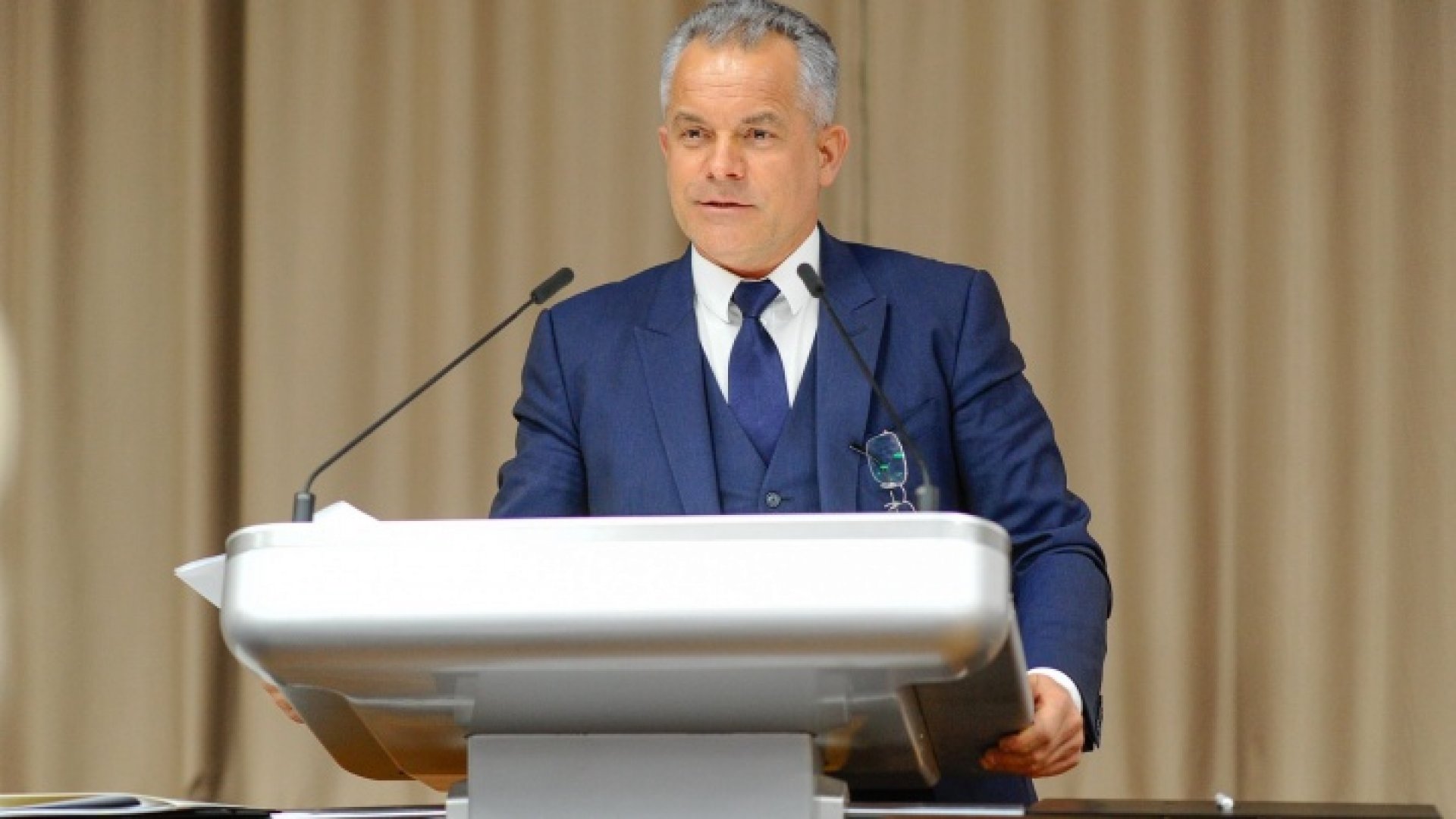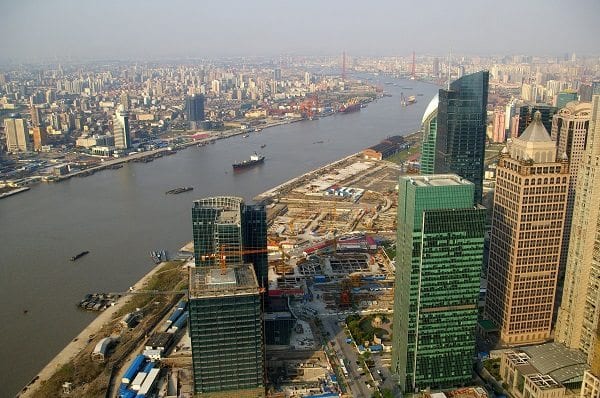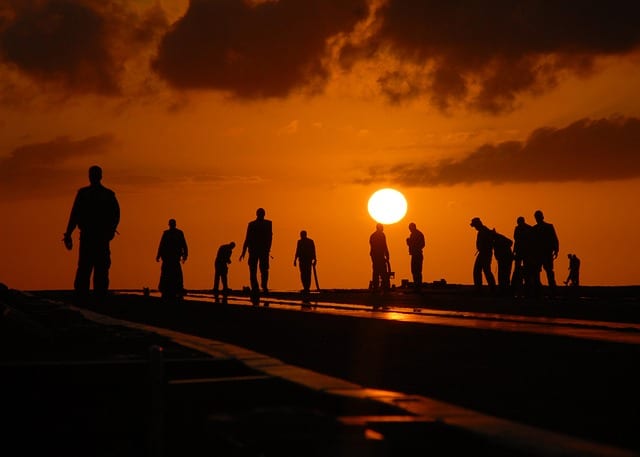(CN) – Yalcin Ayasli, a Turkish-American entrepreneur who founded the now-defunct airline BoraJet, amassed a personal fortune that made him a formidable power broker in both his birth and adoptive countries.
That was before he crossed paths with Turkish businessman Sezgin Baran Korkmaz. Korkmaz has ties to Turkish President Recep Tayyip Erdogan, but he is known in the United States for giving testimony in the investigation of Special Counsel Robert Mueller.
On Tuesday, in a federal racketeering complaint replete with globe-spanning intrigue, Ayasli accused Korkmaz of taking over his airline through a campaign of violence, extortion and financial crime.
Korkmaz’s labyrinthine ties to the Turkish elite and the murky underworld of American financing can be encapsulated in a picture.
Taken in 2017, the same year Mueller subpoenaed him for a grand jury in Washington, the photograph shows Korkmaz standing between Erdogan and an accused white-collar criminal.
Along with his brother Isaiah, with whom he leads a polygamist Mormon sect, Jacob Kingston is awaiting trial on allegations that he cheated the U.S. Treasury out of more than half a billion dollars worth of tax credits, at least $210 million of which he allegedly funneled into Turkey.
Represented in his 127-page lawsuit by the law firms Jones Day and Sheehan Phinney, Ayasli accuses Korkmaz of running a thuggish campaign to devalue Borajet and then buy out the company with the illicit proceeds at a “fire sale” price using his Istanbul-based SBK Holdings.
The suit is filed in New Hampshire, where Ayasli says he maintains his primary residence in Hillsborough County. Contacted in Turkey via social media, Korkmaz defended his dealings with the now-indicted Kingston clan.
I will disgrace you before the eyes of the whole world.”
AYASLI V. KORKMAZ
“My local bank verified the source of the accounts through the U.S. Federal Reserve,” Korkmaz said. “I invested that money in completely legal companies in Turkey and took every precaution that can be reasonably expected to make sure everything was above board.”
For Korkmaz, the lawsuit against him is “transparent” payback by ex-BoraJet executives. “I have done absolutely nothing wrong other than objecting against being embezzled,” he insisted.
Sheehan Phinney attorney Robert Miller declined to comment on his suit with Ayasli, which accuses Korkmaz of assault, attempted bribery, and threatening to rape and murder Ayasli’s female executive.
Within a span of six months, Ayasli alleges that Korkmaz sent him 137 text messages, including WhatsApp warnings that “You and your wife will look for a place to hide” and “I will disgrace you before the eyes of the whole world.”
The tale told in Ayasli’s lawsuit intersects with two high-profile U.S. criminal cases, hopping across Istanbul, Utah and Virginia.
Born in Turkey’s capital of Ankara, Ayasli studied electrical engineering in his home city before obtaining advanced degrees at the Massachusetts Institute of Technology in 1973. He would live in Massachusetts for about three decades and make his fortune founding Hittite Microwave Corp., a public company that he later sold for $2.45 billion.
“Dr. Ayasli is an individual with a deep sense of pride in his Turkish heritage,” his lawsuit states. “Accordingly, after selling his technology company, Dr. Ayasli invested substantial portions of the proceeds of that sale in domestic and foreign non-profit entities and businesses. He did this in pursuit of his overarching goals of promoting and educating people about Turkish culture worldwide and supporting friendly relations between Turkey and the United States.”
Those nonprofits, the Turkish Cultural Foundation and Turkish Coalition of America, remain among the most prominent charities of their kind in the United States. BoraJet had been intended as an expression of Ayasli’s national pride as well, connecting the world to parts of Turkey rarely accessible through air travel.
In the wake of the coup, the RICO enterprise used the Turkish media to spread lies, rumors, and accusations claiming that Dr. Ayasli had treasonous and conspiratorial ties to FETO and Gulen himself.”
Ayasli v. Korkmaz
Ayasli explains in his lawsuit how his circumstances turned dramatically around the time that roughly 250 people were killed on July 15, 2016, in attempted coup d’etat in Turkey.
Korkmaz and his coterie of associates and linked entities are described in this section of the complaint as the “RICO enterprise,” an abbreviation for the U.S. law passed to break up organized crime syndicates.
“Taking advantage of a deeply suspicious public and the ‘State of Emergency’ declared by the government, the RICO enterprise capitalized on its connections to and influence over various Turkish media outlets,” the complaint states.
Erdogan blamed the bloodshed on Fethullah Gulen, a Turkish-born Islamic preacher living in self-imposed exile in Pennsylvania, and Gulen’s movement has been rebranded in Turkey as the Fethullahist Terrorist Organization, often abbreviated as FETO.
Reflecting on the violence later, Erdogan would say that the aborted putsch was a “gift from God” that allowed him to purge his perceived political opponents. Korkmaz’s reaction was allegedly just as opportunistic.
“In the wake of the coup, the RICO enterprise used the Turkish media to spread lies, rumors, and accusations in the media linking Dr. Ayasli to the coup attempt, and claiming that Dr. Ayasli, and his business and charitable interests had treasonous and conspiratorial ties to FETO and Gulen himself,” the complaint states.
The lawsuit details how Korkmaz filed a criminal complaint that accused Ayasli, falsely he says, of Gulenist ties, and planted a series of outlandish stories in Turkey’s state-aligned press. One article claimed that Ayasli used a BoraJet aircraft to secretly fly Gulen into Turkey to plan the coup, and another splashed a photograph of a man identified as Ayasli on its front page.
“The man pictured in the photograph was not Dr. Ayasli,” the complaint says.
Amid this disinformation campaign, threats from angry readers allegedly forced Ayasli to shutter the Istanbul offices of one of his charities. Physical threats occurred as well: the lawsuit says Korkmaz threatened and assaulted Ayasli’s associates and attorneys, including a rape threat against BoraJet’s former chief financial officer Zahide Uner.
“You can’t escape me,” Korkmaz told Uner, according to the complaint. “I will fuck you, and then I will kill you.”
In another portion of the lawsuit, Korkmaz bragged to Ayasli’s attorney about bashing the face of BoraJet’s former chairman of Fatih Akol with an iron ashtray before saying: “I have beaten many people.”
Akol is named in the lawsuit as Korkmaz’s co-conspirator, abusing his position of trust to assist in BoraJet’s buyout.
How Korkmaz came to become a figure into the investigation into Russian interference in the 2016 U.S. presidential election remains a mystery, but he has had a documented, if aborted, business dealing in Russia via his company SBK Holdings, which describes itself as a distressed-debt investment firm.
Though the deal ultimately went to a company owned by Vladimir Putin’s childhood friend Arkady Rotenberg, SBK signed a $850 million preliminary agreement in 2014 to help build a bridge across the Kerch Strait between Russia and freshly annexed Crimea.
Mueller subpoenaed Korkmaz’s grand jury testimony three years later, as reported by ProPublica, in association with an investigation involving possible violations of the Foreign Agents Registration Act.
Though the nature of that testimony remains unclear, Ayasli asserts in his complaint that Korkmaz used that subpoena to bully him.
“Korkmaz sent this document to Dr. Ayasli in an effort to further intimidate Dr. Ayasli and give him the false impression that defendant Korkmaz was politically connected to the Mueller Investigation and as such, could exert political influence over Dr. Ayasli in the United States as well as in Turkey,” the complaint states.
Late last year, federal prosecutors charged Korkmaz’s associate Ekim Alptekin and Bijan Kian, a member of President Donald Trump’s transition team, with failing to disclose a foreign-influence campaign that snared Michael Flynn, the disgraced ex-national security adviser who admitting to acting as a secret agent for Turkey.
The racketeering complaint against Korkmaz lists Alptekin, who remains a fugitive from U.S. criminal charges, as a nonparty co-conspirator.
“Alptekin witnessed defendant Korkmaz assault Dr. Ayasli’s female CFO, Zahide Uner, and heard defendant Korkmaz threaten to stalk, rape, and then murder her,” the complaint says.
The day you pay will come. Don’t you worry, I am aware of your games, and plots against me.”
@sbarankorkmaz
Korkmaz denied the allegations against him in an online interview.
“There is no basis for these allegations,” Korkmaz said. “Mr. Ayasli has engaged in multiple illegal activities for which he is officially charged in Turkey.”
In Turkey, where the justice system allows citizens to file criminal complaints against defendants, Korkmaz has filed criminal complaints against Ayasli and Uner. Ayasli describes these filings as “sham litigation” in his U.S. lawsuit, but Korkmaz noted that Ayasli’s associate was arrested last week in Turkey.
“His co-conspirator Zahide Uner was caught by authorities while trying to flee the country last week, and this lawsuit is nothing more than an effort to cover up his own fraudulent and illegal actions,” Korkmaz said.
Half a world away, Ayasli says that Korkmaz’s influence is not confined to Turkish borders. His lawsuit accuses Korkmaz of attempting unsuccessfully to bribe Hakan Yavuz, a professor at the University of Utah and noted scholar on the Gulen movement.
“Yavuz felt threatened by defendant Korkmaz and immediately informed Dr. Ayasli of the details surrounding defendant Korkmaz’s unannounced visit to his office,” the complaint states.
The professor did not immediately respond to a request for comment.
Last week on Twitter, Korkmaz appeared to threaten prominent Turkish journalist Razi Canikligil for his investigative reporting.
“The day you pay will come,” Korkmaz tweeted at him on Feb. 13. “Don’t you worry, I am aware of your games, and plots against me.”
Two days after receiving these messages, Canikligil said that he refused to be intimidated.
“I am glad they saw his threats and put it in the complaint,” Canikligil told Courthouse News, referring to Ayasli’s attorneys.
“I guess I am the only Turkish journalist writing about this case. And that makes him worry,” he continued. “That’s why he started character assassinations against me. But, when it comes to character, I am tough as a rock. I am just doing my job as a journalist.”
For three years running, Turkey has led the world in jailing reporters. Prosecutors routinely brand journalists critical of the Erdogan government and its allies as terrorists.











